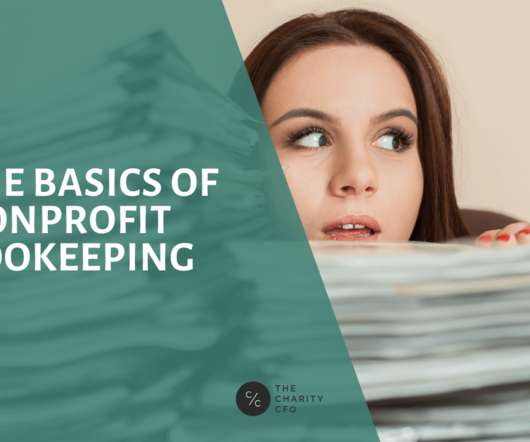The Basics of Nonprofit Bookkeeping
The Charity CFO
FEBRUARY 4, 2022
Nonprofit bookkeeping is the process of entering, classifying, and organizing financial data for the purpose of creating accurate financial records for your organization. Create invoices for goods, services, and donations. Enter bills and vendor invoices. Allocate revenue and expenses to restricted fund accounts .













Let's personalize your content